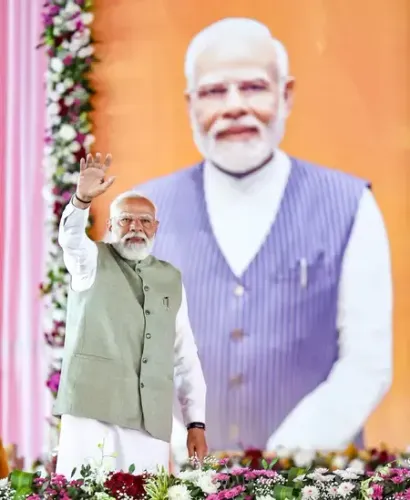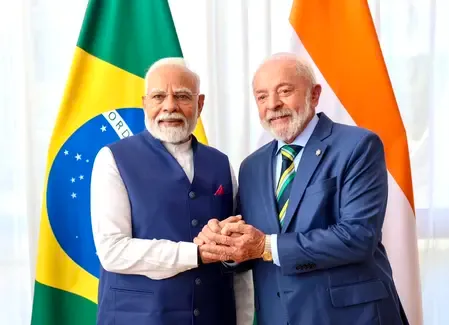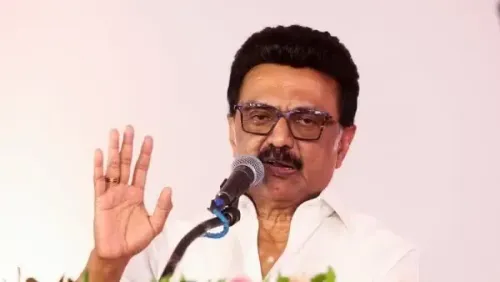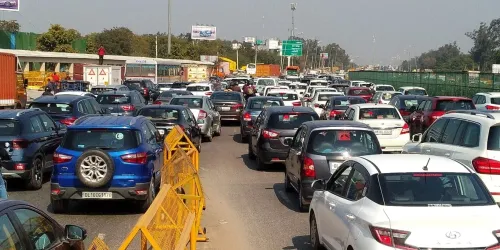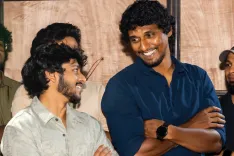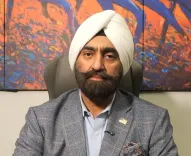FairPoint: Stalin's Mission 2026 Initiative Aims for National Growth
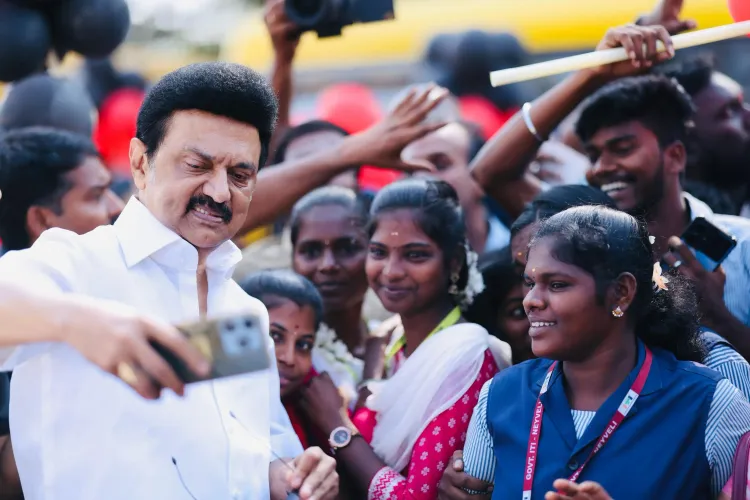
Synopsis
Key Takeaways
- CM M.K. Stalin targets 200 seats in 2026 elections.
- Opposes NEP's three-language formula, claiming Hindi imposition.
- Forms Joint Action Committee against population-based delimitation.
- Engages with regional leaders for a united front.
- Utilizes social media to rally support and provoke sentiment.
New Delhi, March 9 (NationPress) The recent surge in activities by Tamil Nadu Chief Minister M.K. Stalin is not unexpected, especially with the state gearing up for the 2026 Assembly elections. His ambitious goal is to secure 200 out of the 234 total seats.
To achieve a “100 percent” victory, the ruling party must excel in various areas—be it actions or rhetoric, governance or administration, perception or presentation. The government’s past performance must be exemplary to gain overwhelming public support.
However, does Stalin's DMK government meet the expectations regarding governance, public perception, and overall citizen satisfaction? The administration has encountered difficulties on several fronts, particularly in law and order, compounded by the anti-incumbency sentiment.
No party can achieve a landslide victory without a significant wave of public sentiment—often seen in India during conflicts with Pakistan or China or when the Indian cricket team excels in major tournaments. Other elements, such as language, culture, and regional identity, if tactically utilized, can also influence electoral outcomes.
CM Stalin is cognizant of this reality. Free welfare programs do not always assure electoral triumph, as evidenced by Arvind Kejriwal's AAP facing a substantial defeat in the Delhi Assembly elections. In light of this, Stalin has identified his electoral tools: the NEP's three-language policy and the delimitation issue.
For several months, he has been vocally opposing the New Education Policy (NEP) 2020, accusing the Central government of enforcing Hindi through the three-language formula. Amidst this ongoing debate, CM Stalin has launched another offensive against the BJP-led Union government—delimitation.
He contends that the population-based delimitation proposed for 2026 will be detrimental to Tamil Nadu and other southern states, arguing that Tamil Nadu stands to lose Lok Sabha seats because of its comparatively slow population growth.
On March 5, he convened an all-party meeting to address this issue and has since reached out to the chief ministers of West Bengal, Andhra Pradesh, Karnataka, Kerala, Odisha, and Punjab, urging them to unite against delimitation. He has invited them to a meeting in Chennai on March 22.
Notably, he has also invited BJP representatives from Odisha, Karnataka, Kerala, Andhra Pradesh, and West Bengal to join the discussion.
Stalin is forming a Joint Action Committee (JAC), asserting that its mission is “to protect our states from being silenced.”
By focusing on the intertwined issues of language and delimitation, CM Stalin seeks to rally support not just within Tamil Nadu, but also from other opposition-led states.
He has been actively posting on social media almost every morning, directly targeting the BJP, its ministers, and its leaders.
In a post on X, he criticized Education Minister Dharmendra Pradhan, stating: “It was the Union Education Minister who provoked us to write this series of letters when we were merely fulfilling our responsibilities. He overstepped and dared to threaten an entire state to accept Hindi imposition, and now he faces the fallout of igniting a conflict he cannot win.”
The CM added, “...This is akin to an LKG student lecturing a PhD holder…”
His posts are provocative and resonate with Tamil pride: “Dravidam does not take dictation from Delhi. Instead, it charts the path for the nation to follow.” … “Tamil Nadu will not tolerate Hindi colonialism replacing British colonialism.” … “From the names of schemes to awards and Union government institutions, Hindi has been imposed to an intolerable extent, suffocating non-Hindi speakers, who constitute the majority in India.” … “History will recall that it was DMK that stood as the vanguard.” … “Imposition of anything breeds discord. Discord threatens unity.”
CM Stalin and his party have been promoting hashtags like 'Stop Hindi Imposition' to evoke public sentiment, an essential strategy for creating a favorable electoral climate. The matters of language and regional identity have historically struck a chord with Tamil voters.
By appealing to these sentiments, Stalin aims to secure 200 out of 234 seats. His campaign has now reached a critical juncture—he is no longer merely addressing local concerns but is transforming this into a national discussion.
He is positioning himself not only as the voice of the South but also as a significant opposition leader with a robust agenda. While the North-South divide may serve him well electorally in Tamil Nadu, Stalin is also striving to enhance his standing among national leaders, aiming to be recognized alongside or even above Mamata Banerjee and Rahul Gandhi.
His strategy involves transforming the Dravidian identity into a national cause by associating it with regional identity, culture, and language. His ultimate objective is to construct a narrative that counters the BJP's Hindutva agenda. This will assist him on multiple fronts—securing DMK's decisive victory in Tamil Nadu for a second consecutive term, a feat only accomplished by his father, the late Karunanidhi, to establish the position of his son Udhayanidhi Stalin, currently a first-term MLA and Deputy CM, within the extensive family legacy of Karunanidhi, and ultimately to emerge as a national leader.
Language, rights, and territorial issues are always emotionally charged subjects that can influence public opinion, and CM Stalin is navigating these to achieve his goal of 200 seats in 2026.
(Deepika Bhan can be contacted at deepika.b@ians.in)


